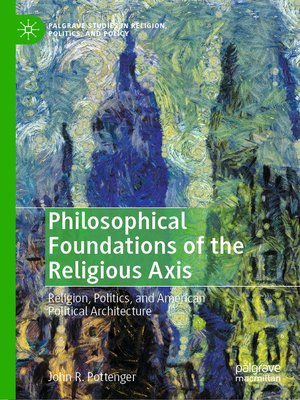Philosophical Foundations of the Religious Axis
ebook ∣ Religion, Politics, and American Political Architecture · Palgrave Studies in Religion, Politics, and Policy
By John R. Pottenger

Sign up to save your library
With an OverDrive account, you can save your favorite libraries for at-a-glance information about availability. Find out more about OverDrive accounts.
Find this title in Libby, the library reading app by OverDrive.



Search for a digital library with this title
Title found at these libraries:
| Library Name | Distance |
|---|---|
| Loading... |
This book discusses the evolution of three philosophical foundations from the twelfth through the eighteenth centuries that converged to form the basis of liberal democracy's approach to the place and role of religion in society and politics. Identified by the author as a "religious axis," the period of convergence promoted rational and empirical investigation, enabled the development of diverse religious beliefs, and affirmed religious liberty and expressions amidst pluralist politics. The author shows that the religious axis' three philosophical foundations—epistemic, axiological, and political—undergird the political architecture of American liberal democracy that designed a containment structure to protect a vast array of religious expressions and encourage their presence in the public square. Moreover, the structure embodied a democratic ethos that drives religious and political pluralism—but within limits. The author argues that this containment structure has paradoxically ignited frenzied fires of faith that politically threaten the structure's own limits.







